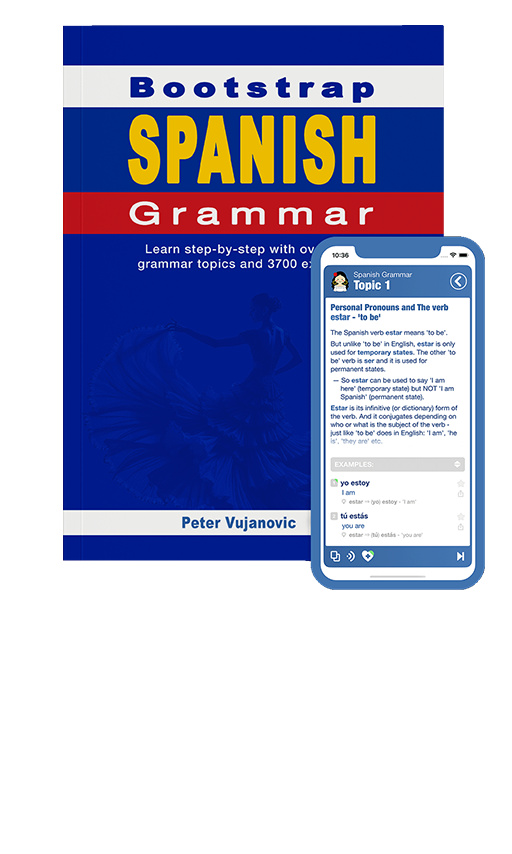Spanish grammar - Telling the time - ¿Qué hora es? |
|||
|
|||
When talking about the time of day, we use la hora ('hour'), not el tiempo - el tiempo refers to periods or durations of time. We use qué when asking the time. Telling the time in Spanish uses the impersonal third-person con-jugation of the verb ser. -- The singular es - '(it) is' - for one o'clock. And the plu-ral son - '(they) are' - for more than one o'clock. When stating the time, the definite article (agreeing in number) is used but the word 'hora(s)' is dropped. While it is usual to tell the time with minutes by saying Son las X y Y (minutos), we also have: • y cuarto for 'quarter past' • y media for 'half past' • menos cuarto for 'quarter to' The Spanish, like most Europeans, use the 24-hour clock. So 3 p.m. is 15:00 and 2:15 a.m. is 2:15. Note that you should avoid using media, cuarto, and menos cuarto when using the 24-hour clock. It is not uncommon to use the 12-hour clock and de la mañana for a.m. and de la tarde or de la noche for p.m. |
| Examples: | |
|
¿Qué hora es?
What time is it? |
|
|
Es la una.
It is one o'clock.
|
|
|
Son las dos.
It is two o'clock.
|
|
|
Son las tres y cuarto.
It is a quarter past three.
|
|
|
Son las cuatro y media.
It is four thirty.
|
|
|
Son las cinco menos cuarto.
It is quarter to five.
|
|
|
Son las cuatro y cuarenta y cinco.
It is four forty-five.
|
|
|
Son las cinco y diez.
It is ten past five.
|
|
|
Son las siete menos diez.
It is ten to seven.
|
|
|
Son las seis y cincuenta.
It is six fifty.
|
|
|
Son las siete y veinte.
It is seven twenty.
|
|
|
Son las nueve menos veinte.
It is twenty to nine.
|
|
|
Son las ocho y cuarenta.
It is eight forty.
|
|
|
Son las ocho de la mañana.
It is eight in the morning (8 a.m.).
|
|
|
Son las cinco de la tarde.
It is five in the afternoon (5 p.m.).
|
|
|
Son las diecisiete horas.
It is seventeen hours (17h).
|
|
|
Son las ocho de la noche.
It is eight in the evening (8 p.m.).
|
|
|
Son las veinte horas.
It is twenty hours (8 p.m.).
|
|
|
Es mediodía.
It is noon.
|
|
|
Es medianoche.
It is midnight.
|
|
|
¿Tienes hora?
Do you have the time?
|
|
|
¿Tienes hora, por favor?
Do you have the time, please?
|
|
|
¿A qué hora es el concierto?
What time is the concert? |
|
|
El concierto es a las ocho de la noche.
The concert is at eight o'clock in the evening.
|
|
|
¿A qué hora tiene lugar la reunión?
What time does the meeting take place? |
|
|
¿A qué hora te despertaste?
What time did you wake up? |
|
|
¿Qué hora era cuando comimos?
What time was it when we ate?
|
|
|
Las cinco y media es muy temprano para cenar.
Five thirty is too early for dinner. |
|
|
El tren llega alrededor de las nueve de la noche.
The train arrives around 9 p.m.
|
|
 |
|


 ser ⇒ (es) es (present tense)
ser ⇒ (es) es (present tense)
